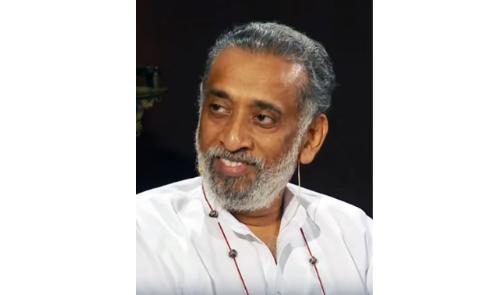Science
India’s Lateral Entry Scheme Stalls Amid Political and Structural Challenges

The Indian government’s lateral entry scheme, introduced in 2018, aimed to rejuvenate governance by incorporating private-sector professionals into key administrative roles. The initiative promised to cut through bureaucracy and infuse fresh ideas into the rigid framework of Indian governance. However, after seven years, it has become more of an afterthought in bureaucratic discussions than a transformative reform.
Several factors have contributed to the scheme’s stagnation. Firstly, the government faced backlash over the reservation debate. By categorizing lateral entry positions as “single-post cadres,” the initiative was criticized for sidestepping constitutional quotas intended to ensure affirmative action. Politically, this move was untenable. Rather than confronting the issue directly by establishing a transparent system of reserved slots, the government retreated, quietly withdrawing advertisements for 45 positions last year while suggesting a broader re-evaluation was underway.
Additionally, the talent acquisition aspect has not yielded the desired results. Instead of attracting top-tier professionals from India’s corporate sector, the majority of applications have come from mid-level managers in public sector units, eager for stability in Delhi. The salary structure, based on government scales, remains significantly lower than what senior private sector leaders command. Consequently, the few who do apply often see the roles as lifestyle changes rather than national commitments.
For those who successfully navigated the selection process, the outcomes have been disappointing. Experts brought in for their specialized skills frequently find themselves mired in bureaucratic intricacies, their expertise underutilized. Real innovation is difficult to achieve when one is expected to maneuver through the same procedural hurdles as career civil servants. What was envisioned as a groundbreaking reform now resembles yet another bureaucratic exercise caught in the tensions between social justice, competitive pay, and the need to redefine governmental roles.
Urjit Patel’s Return to the Spotlight
In a contrasting development, former Reserve Bank of India Governor Urjit Patel has resurfaced in the global arena as India’s representative at the International Monetary Fund. His mid-term resignation in 2018, attributed to “personal reasons,” raised eyebrows amid speculation regarding government interference. Now, Patel steps into a significant role, which not only reflects his expertise but also indicates India’s evolving stance on global credibility.
Amid discussions of economic challenges in South Asia, including debt issues in Sri Lanka and fiscal struggles in Bangladesh, New Delhi appears to prioritize its international reputation. Patel’s background in inflation targeting and experience with the IMF positions him as a credible figure on the global stage. However, his return to prominence also prompts questions about whether the government genuinely values institutional independence or is merely seeking to leverage his expertise abroad while maintaining control domestically.
The implications of Patel’s appointment are profound. It serves as a test for the Indian government to balance its technocratic ambitions with the political realities at home. The complexities of this situation illustrate the contradictions inherent in governance, where the significance often lies not just in appointments but also in the narratives they convey.
Whistleblower Highlights Corruption in Uttarakhand
In another notable development, Sanjiv Chaturvedi, the chief conservator of forests in Uttarakhand, has drawn attention for his unwavering commitment to environmental integrity. Chaturvedi, a Magsaysay Award winner, has consistently exposed corruption within various governmental sectors, including the All India Institute of Medical Sciences and the Haryana forest department.
Recently, he uncovered irregularities in the approval processes regarding illegal eco huts in Munsiyari. His report revealed how rules were circumvented and public funds misappropriated under the guise of eco-tourism initiatives. Chaturvedi’s fearless advocacy for accountability has led to calls for investigations by the Central Bureau of Investigation (CBI) and the Enforcement Directorate (ED).
The central government responded to Chaturvedi’s findings by directing the state forest department to prosecute those implicated. His determination exemplifies the challenges whistleblowers face in a system where exposing corruption often leads to personal and professional repercussions. Without his vigilance, such issues may have remained concealed beneath the surface.
These developments reflect the complexities and challenges facing India’s governance system. Whether through the stalled lateral entry scheme, the strategic positioning of Urjit Patel, or the courageous efforts of whistleblowers like Sanjiv Chaturvedi, the narrative of governance in India continues to unfold, revealing the intricate interplay between political intentions and administrative realities.
-

 World5 months ago
World5 months agoSBI Announces QIP Floor Price at ₹811.05 Per Share
-

 Lifestyle5 months ago
Lifestyle5 months agoCept Unveils ₹3.1 Crore Urban Mobility Plan for Sustainable Growth
-

 Science4 months ago
Science4 months agoNew Blood Group Discovered in South Indian Woman at Rotary Centre
-

 World5 months ago
World5 months agoTorrential Rains Cause Flash Flooding in New York and New Jersey
-

 Top Stories5 months ago
Top Stories5 months agoKonkani Cultural Organisation to Host Pearl Jubilee in Abu Dhabi
-

 Sports4 months ago
Sports4 months agoBroad Advocates for Bowling Change Ahead of Final Test Against India
-

 Science5 months ago
Science5 months agoNothing Headphone 1 Review: A Bold Contender in Audio Design
-

 Top Stories5 months ago
Top Stories5 months agoAir India Crash Investigation Highlights Boeing Fuel Switch Concerns
-

 Business5 months ago
Business5 months agoIndian Stock Market Rebounds: Sensex and Nifty Rise After Four-Day Decline
-

 Sports4 months ago
Sports4 months agoCristian Totti Retires at 19: Pressure of Fame Takes Toll
-

 Politics5 months ago
Politics5 months agoAbandoned Doberman Finds New Home After Journey to Prague
-

 Top Stories5 months ago
Top Stories5 months agoPatna Bank Manager Abhishek Varun Found Dead in Well









